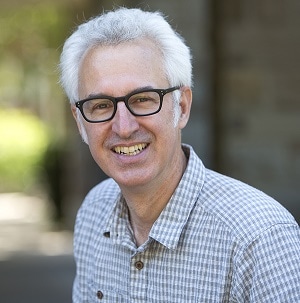Sep 8 2016
 Cowen(Credit: Cornell University)
Cowen(Credit: Cornell University)
Cornell researchers plan to utilize a $1 million grant from the National Science Foundation (NSF) to develop, test and upgrade new residential electric storage systems. Their three-fold aim for the future is to reduce electric bills, greenhouse gas emissions and the need for power plants.
"Smart meters – which measure and manage residential electricity in real time – already have been installed in about 40 percent of homes in the United States, but have yet to meet the pledge of smaller electric bills and engage consumers." explained Todd Cowen, Professor at Cornell University.
Cowen is also the Kathy Dwyer Marble and Curt Marble Faculty Director for Energy at Cornell’s David R. Atkinson Center for a Sustainable Future.
An NSF grant, titled “Energy Smart Community - Leveraging Virtual Storage to Turn Advanced Metering Infrastructure Into a Smart Service System,” aims to boost grid flexibility, combine distributed renewable energy sources and decrease household electricity costs. The grant was announced on August 29.
While we already have a large number of homes in the U.S. with smart meters, these homes lack storage capacity that pair with them. This stands as a barrier to developing a truly efficient retail electricity market. Smart metering has been driven by utilities and government incentives, but consumers were absent from the process. This grant corrects that, so consumers are engaged in the processes, and we as a society can make great strides in improving the environment.
Todd Cowen, Professor, Cornell University
The project will examine whether introducing rechargeable batteries (electric residential storage) to separate residential smart meters can provide considerable benefits.
Ideally, we’re looking to help homes create a reservoir of energy, so that when electricity prices are low, the smart meters will automatically charge their batteries with the cheaper energy to use at a later time. While we’re trying help consumers, this can create potential business opportunities, such as electric storage providers, smart-system service software and residential-sector financing, not to mention creating an infrastructure for the emerging retail energy market.
Todd Cowen, Professor, Cornell University
The grant is funded via the NSF’s Partnerships for Innovation: Building Innovation Capacity program, which assists university-industry collaborations that result in transformational societal benefits. Cowen leveraged the energy industry’s focus on New York State and its Reforming the Energy Vision (REV) to collaborate with AVANGRID, BMW North America, SolarCity and Distributed Sun.
Joining Cowen on the grant as co-principal investigators are Richard Stedman, professor of natural resources; Robert Thomas, professor of electrical and computer engineering; William Schulze, the Robinson Professor in Applied Economics and Management; and Ricardo Daziano, the David Croll Fellow Assistant Professor in civil and environmental engineering.
Other faculty members affiliated with the grant: Eilyan Bitar, assistant professor of electrical and computer engineering; Tim Mount, professor of applied economics and management; Richard Schuler, professor emeritus in civil and environmental engineering and economics; and Susan Fussell, professor in communication and information science.
Cornell partners include the David R. Atkinson Center for a Sustainable Future and Cornell Cooperative Extension of Tompkins County.